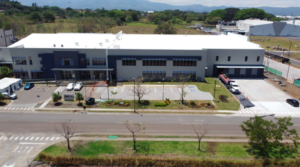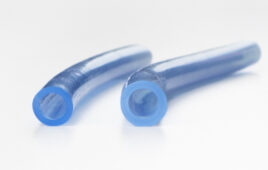Medical device manufacturing is flourishing in the Central American country, spurred by a host of incentives.

[Image from Unsplash]
Medtech OEMs have made the Central American company a manufacturing hub since the 1990s. Major companies operating there include Abbott, Bayer, Boston Scientific, Cardinal Health, Edwards Lifesciences, Hologic, Medtronic, Philips, Smith+Nephew and Wright Medical. Eight of these are among the top 20 exporters in Costa Rica, representing nearly $2.7 billion in medical device exports in 2019 — 73% of the total.
Medtech OEMs in Costa Rica want their suppliers nearby, making the Central American country a magnet for contract manufacturers. The addition of medtech sterilization facilities in Costa Rica — BeamOne (now Steris) in 2009 and Sterigenics in 2013 — also helped spur more contract manufacturing. Before that, manufacturers had to ship products to the U.S. for sterilization, according to Pilar Madrigal, director of investment advisory for CINDE, Costa Rica’s investment promotion agency.
Why Costa Rica?
The Costa Rican government has worked hard to attract and keep medtech companies, which value its political and economic stability, tax incentives and highly educated workforce. The government abolished its military in 1948 following a civil war, turning its attention toward developing political stability and promoting education, environmental protection, public health and national and cultural preservation.
The absence of an army makes it possible each year to fund all the country’s public universities, Madrigal told Medical Design & Outsourcing in a recent interview.
Costa Rica offers tax incentives for foreign manufacturers under the Free Trade Zone Regime, a law that exempts companies from a high percentage of income taxes, export and import duties, municipal and value-added taxes, depending on the size of their investment in the country.
“It really covers a whole scenario that pretty much can give you tax-exempt status for at least eight years,” Madrigal said. “If the companies reinvest and continue to grow and reinvest in other types of processes or the same ones, they can submit for a renewal of those tax advantages. Companies have been operating under that fiscal regime for years.”
Costa Rica also has free trade with the U.S., China and the European Union. Most of the foreign companies with operations in Costa Rica hail from the U.S. and ship most of their products there, Madrigal said. But even that is changing, with some companies exporting to the Netherlands for shipping to the rest of the EU and even Asia and Australia.
The tax incentives are great, but several contract manufacturers told MDO that the quality of employees, their education and training, are the main attraction. Costa Rican children learn English beginning in kindergarten, another incentive to attract U.S. companies, according to Madrigal.
“It’s a great opportunity in terms of ROI, but most of them talk about the talent,” she said.
Looking back and ahead

SMC employs more than 200 people in Alajuela, Costa Rica [Image courtesy of SMC]
Contract manufacturer SMC (Somerset, Wis.) bought Stoesser Industries in 2008, making Stoesser a vice president. SMC’s customers include some of the largest OEMs in Costa Rica, and the company also does finished device manufacturing there for export to the U.S.
SMC employs more than 200 people in Alajuela, Costa Rica, and is poised to invest at least $20 million to double the size of its assembly and injection molding operation there to 120,000 square feet. It’s the company’s third expansion there in 10 years.
“I feel safe to say that this latest investment and expansion is not our last in Costa Rica,” Stoesser said. “We see that growth happening on a continuous basis, and other OEMs continue to move the operations down to Costa Rica. They need our support. It’s a good thing.”
Anthony Amador has been president of interventional device manufacturer Biomerics’ facility in Cartago, Costa Rica for eight years, including under different ownership. But he’s been working in medtech there for 20 years and has seen many changes.
“Even with the COVID pandemic we have been going through, medical device has been expanding,” Amador said. “All the companies have been expanding, hiring. I think for the future, it’s going to grow a lot more.”
Biomerics has been in Cartago for six years. It previously expanded from 20,000 to 50,000 square feet and is now building a 100,000-square-foot factory there.
The Salt Lake City–based company initially kept its Costa Rica production to legacy parts, contrast media and anesthesia lines — high-volume, high-labor manufacturing that costs less than in other countries. Now it’s advancing technical capabilities there to include tubing extrusion, injection molding, laser processing of metals and advanced catheter shaft production, according to sales and marketing director Chris Richardson.
More expansions
Here are some other contract manufacturers expanding in Costa Rica:
- Freudenberg Medical (Beverly, Mass.) is adding 8,600 square feet to its Alajuela factory, including an additional ISO Class 7 cleanroom for catheter manufacturing and assembly, molding, extrusion, and packaging, as well as added office space. Freudenberg opened a shared service center in Alajuela in 2020 to provide specific IT and accounting services for its North American operations. “It has proven to be an excellent location to hired skilled people in IT, in accounting, on the engineering side,” said CEO Max Kley. “We are very happy with the quality of talent that we’ve been able to bring on board.”
- Laser micro manufacturer Resonetics (Nashua, N.H.) set up shop in Costa Rica in 2016. Its factory in the Coyol Free Zone business park in Alajuela has become the company’s highest-producing site, operating 24/7 and focusing on high-volume component and sub-assembly production for export and for the local medical device industry. Resonetics announced in April that it has leased more space in the Coyol park to more than double its production there. Employees there are fabricating components, mainly using laser processing, cutting, blading and welding. The expansion will allow Resonetics to add centerless grinding capabilities and nitinol processing, according to CEO Tom Burns. “I think Costa Rica is only getting more attractive,” Burns said. “Success begets success.”
- Viant Medical announced in April that it has completed a major expansion of its manufacturing facility in Heredia. The expansion adds 14,000 square feet of ISO Class 8 cleanroom molding and assembly space and repurposes 16,000 ft2 of additional warehouse, office and support capacity, for a total of 180,000 ft2 across four buildings. Viant added 15 molding machines and two-shot molding capability, which complements the liquid silicone rubber molding operation added in 2020. The company expects to add 300 jobs through 2021. The expansion and hiring will cost up to $4 million. “The primary (reason) is their intellectual capital,” COO Sean Crowley said of the company’s decision to expand in Costa Rica. “The capability of the employee base down there is significant.”
Crowley added that the country has more to offer medtech companies including sterilization and trained employees. “It’s just not something that you could find if you were to move to another country with lower-cost labor.”




